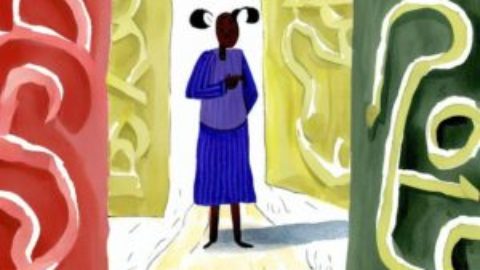Exploring the Mating Mindset of Involuntary Celibates
One group that has gained attention in recent years is involuntary celibates, or “incels” for short. These individuals struggle to form romantic relationships and often feel excluded from the dating world. In this article, we’ll take a closer look at the mating psychology of incels and try to understand their mindset better.
Reasons Behind Involuntary Celibacy

Incels have various reasons for being single, and many of these reasons stem from internal factors such as social awkwardness, poor flirting skills, and a perceived lack of physical attractiveness. External factors can also play a role, but they tend to be less common.
Low Self-Perceived Mate Value
One key characteristic of incels is their low self-perceived mate value. They often rate themselves as less attractive and less desirable than their non-incel counterparts. This perception can lead to a lack of confidence and an inability to approach potential partners, further reinforcing their single status.
Lower Partner Standards

Interestingly, incels tend to have lower standards when it comes to choosing a romantic partner. They are more likely to accept potential mates with lower levels of physical attractiveness, social status, and fashion sense, among other traits. This contradicts the idea that incels have unrealistically high standards that prevent them from finding a partner. Instead, they tend to adjust their expectations based on their self-perceived mate value.
Misunderstanding Women’s Preferences
One area where incels struggle is in understanding what women want in a partner. They tend to overestimate the importance of physical attractiveness and social status while underestimating traits like kindness and emotional stability. This skewed perception can create a disconnect between incels and the women they hope to attract.
It’s important to note that this misunderstanding is not unique to incels; many men, regardless of their relationship status, make similar mistakes when trying to understand women’s preferences. However, these errors in judgment tend to be more pronounced among incels.
The Bigger Picture
The mating psychology of incels is a complex and multifaceted issue, influenced by various internal and external factors. While some incels may feel like victims of circumstances beyond their control, many acknowledge that their struggles in the dating world are partly due to their own shortcomings.
Potential Paths to Change

One potential path to change for incels is to focus on building self-esteem and confidence. While success in romantic relationships can play a significant role in an individual’s self-worth, there are other ways to build self-esteem outside of dating.
Another area where incels could benefit from support is in developing a more accurate understanding of women’s preferences and desires. Psycho-educational interventions could help incels gain a more nuanced view of what women want in a partner and teach them that preferences can vary greatly from person to person.
Conclusion
In conclusion, the mating psychology of incels is a complex issue that requires a deeper understanding of the factors that contribute to their struggles. By examining their mindset and working on self-improvement, incels may find new ways to navigate the dating world and form meaningful relationships. With increased self-esteem, better communication skills, and a more accurate understanding of what potential partners are looking for, incels may be able to overcome their involuntary celibacy and build healthier romantic connections.
Dispelling Myths and Misconceptions
As we seek to better understand the incel community, it’s important to dispel myths and misconceptions that can perpetuate negative stereotypes. By doing so, we can foster a more empathetic and supportive environment for those struggling with involuntary celibacy.
Remember, every individual’s experience is unique, and we should avoid making generalizations about an entire group based on the actions or beliefs of a few. Encouraging open dialogue and understanding can lead to positive change and help those who feel isolated in their struggles find the support they need.
Seeking Help and Support
If you or someone you know is struggling with involuntary celibacy or facing challenges in the dating world, consider seeking professional help from a therapist or counselor. These professionals can provide guidance, support, and tools to help individuals improve their self-esteem, social skills, and understanding of relationship dynamics. Remember, it’s never too late to make a positive change in your life and work towards healthier and more fulfilling relationships.






